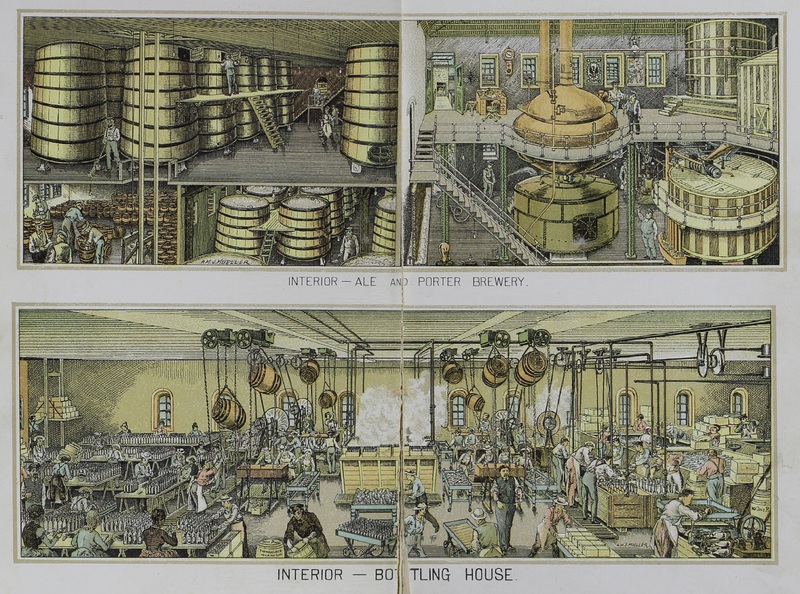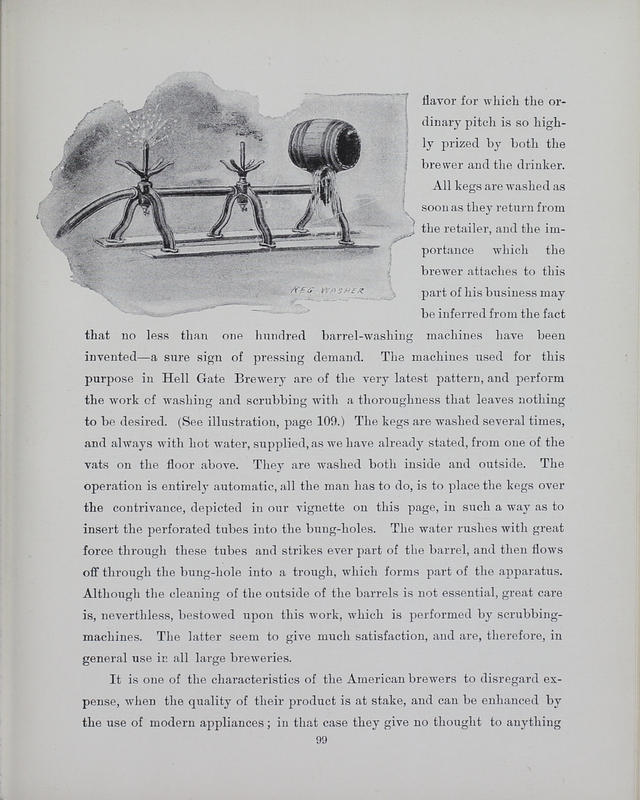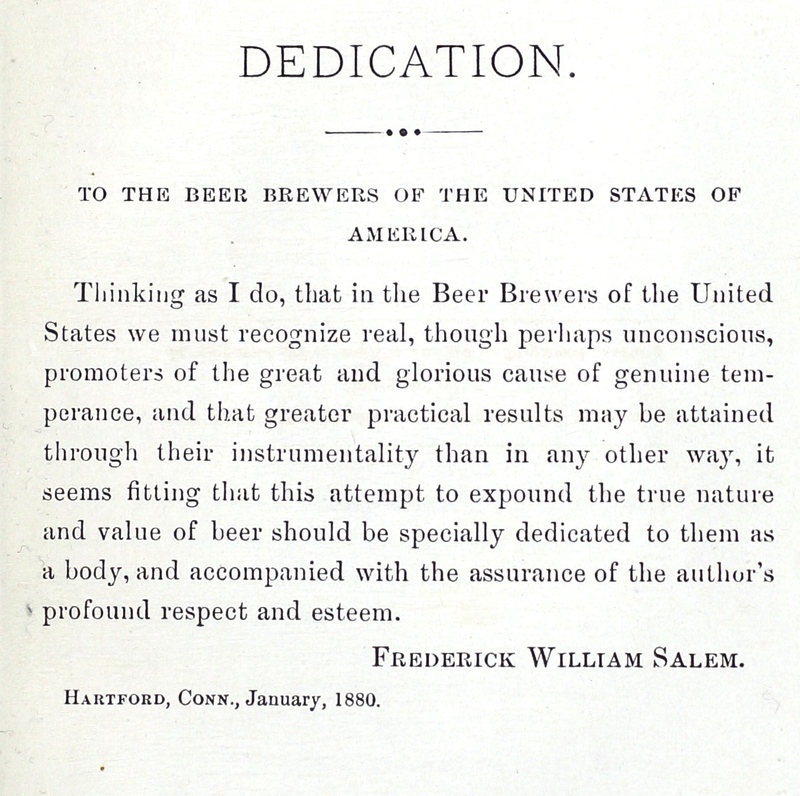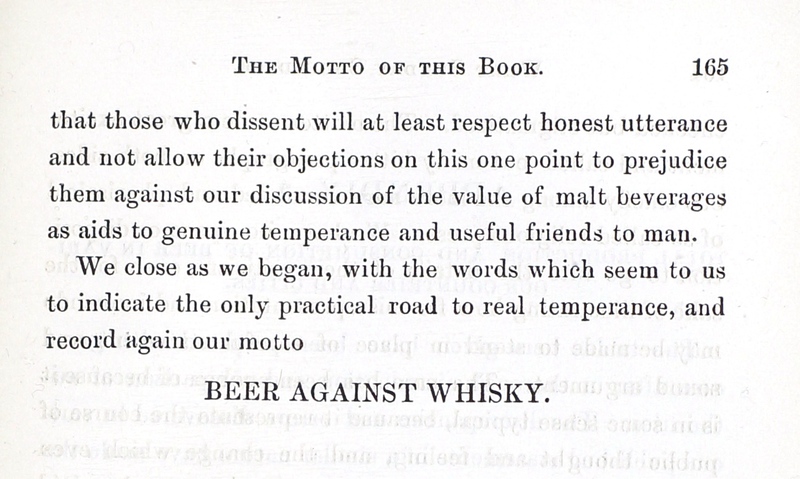Beer’s Place in Prohibition
F.W. Salem dedicated his 1880 treatise, Beer, its History and its Economic Value as a National Beverage, to brewers, to whom he referred as the “real, though perhaps unconscious, promoters of the great and glorious cause of genuine temperance.” The dedication set the tone for his book, which attempts to “call attention to the value of pure beer as a preventative of intemperance."
Salem positioned himself as being in favor of temperance but argued for beer to be a separate issue from liquor. He and others held that beer was not damaging to family life in the way that liquor was, and that it was being unfairly judged by the temperance advocates who wanted to ban all alcohol use in the United States. In his book, he made an argument that no alcohol should be banned as a law that encroached on such personal habits would be impossible to enforce. In the preface, Salem mentioned that legislators might find his book to be of value. He also crafted a motto for the book that could easily be put on propaganda: “Beer Against Whisky.” The motto can later be found in other Temperance literature.
His theory was proven during the 1920s when legal prohibition of alcohol in the United States failed abysmally.

Bergner & Engel Brewing: An Example of the Times

Brewing Technology in a Modern Age


